 Petzlover
Petzlover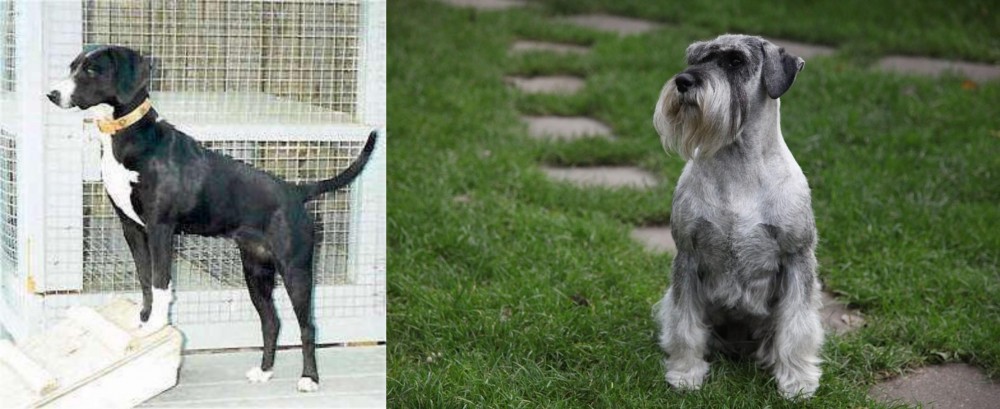 Stephens Stock is originated from United States but Standard Schnauzer is originated from Germany. Both Stephens Stock and Standard Schnauzer are having almost same height. Stephens Stock may weigh 32 kg / 71 pounds more than Standard Schnauzer. Both Stephens Stock and Standard Schnauzer has almost same life span. Stephens Stock may have less litter size than Standard Schnauzer. Stephens Stock requires Low Maintenance. But Standard Schnauzer requires High Maintenance
Stephens Stock is originated from United States but Standard Schnauzer is originated from Germany. Both Stephens Stock and Standard Schnauzer are having almost same height. Stephens Stock may weigh 32 kg / 71 pounds more than Standard Schnauzer. Both Stephens Stock and Standard Schnauzer has almost same life span. Stephens Stock may have less litter size than Standard Schnauzer. Stephens Stock requires Low Maintenance. But Standard Schnauzer requires High Maintenance
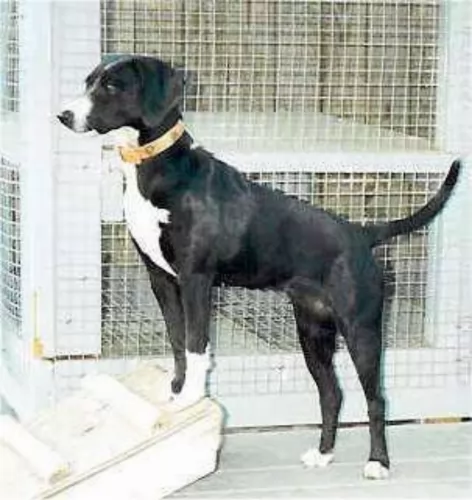 The Stephens Stock is a member if the Cur dog breeds. They are a scent hound bred in southeastern Kentucky by the Stephen’s family. For generations the dogs were simply known as the “little black dog”. The Cur breeds are dogs with a mixture of ancestry and the Stephens Cur is no different. However, the name Cur now means a working dog from the South in the United States. They were known as hunting and guard dogs, chasing wild boar, squirrel and raccoon. They were also called the Mountain Curs throughout Kentucky, Tennessee and Virginia.
The Stephens Stock is a member if the Cur dog breeds. They are a scent hound bred in southeastern Kentucky by the Stephen’s family. For generations the dogs were simply known as the “little black dog”. The Cur breeds are dogs with a mixture of ancestry and the Stephens Cur is no different. However, the name Cur now means a working dog from the South in the United States. They were known as hunting and guard dogs, chasing wild boar, squirrel and raccoon. They were also called the Mountain Curs throughout Kentucky, Tennessee and Virginia.
These mountain working dogs came close to extinction by the 1940’s but four separate breeders set out to save the Mountain Curs. They were the founders of the Mountain Cur Club and involved Woody Huntsman of Kentucky, Carl McConnel of Virginia, Dewey Ledbetter of Virginia and of course Hugh Stephens of Kentucky. Later the name of the club was changed to the Original Mountain Cur Breeders Association or OMCBA. The Mountain View Cur, the Treeing Cur and the Stephens Stock Cur were the results of their efforts.
In the 1970’s Stephen’s decided that his Cur was different from the original Mountain Curs and should be a separate breed. He formed the Stephen’s Breeders Association and the breed was recognized as distinct from other Curs. However, it was not recognized by the UKC (United Kennel Club) until 1998.
 Coming out of Germany in the 14th and 15th century is the Standard Schnauzer or Mittelschnauzer. Both the Giant Schnauzer and Miniature Schnauzer are descendants of the Standard Schnauzer. The first name for this breed was the Wire-haired Pinscher until 1879. The breed is a working breed that is popular in Europe and was first in a dog show in 1879 in Hanover, Germany. In 1997 they won Best in Show at the Westminster Kennel Club in New York.
Coming out of Germany in the 14th and 15th century is the Standard Schnauzer or Mittelschnauzer. Both the Giant Schnauzer and Miniature Schnauzer are descendants of the Standard Schnauzer. The first name for this breed was the Wire-haired Pinscher until 1879. The breed is a working breed that is popular in Europe and was first in a dog show in 1879 in Hanover, Germany. In 1997 they won Best in Show at the Westminster Kennel Club in New York.
These medium size Schnauzers were bred in the Middle Ages to be versatile in working and herding in Germany. There seems to be artwork from the 14th through the 16th centuries featuring this breed of dog as a hunter. It is believed that the common ancestors of the Standard Schnauzer is the German Pinscher and the gray Wolf Spitz, along with the black German Poodle and the Bolognese.
It was 1850 when the breed gained recognition as a purebred with distinct and recognizable features. Those are not all the same features that the dogs of today show. These dogs had thick hair on their face, a double coat that is wiry, and their tails were cropped. These dogs were initially Wire-haired German Pinscher then in 1879, a dog named Schnauzer won Best in Show in Hanover. By 1900, the breed was being called Schnauzer everywhere.
The first breed standard was written under the Wire-haired German Pinscher name in the early 1880’s. This standard allowed for a lot of different colors, but the salt and pepper of today was not introduced until the late 1800’s. Then the standard was rewritten in 1907 for the Standard Schnauzer with this as the dominant color.
The first official Standard Schnauzer imported to the United States came in 1905 even though there is a claim that one competed in the 1899 Westminster Kennel Club in the Miscellaneous Class. Following the first World War, the breed became increasingly popular in the States. At that time the US club was called the Wire-haired Pinscher Club of America in 1925. Both standard and miniature sized schnauzer are included in this club.
The breeds were separated in 1933 and became the Standard Schnauzer Club of America and classified by the American Kennel Club as part of the Working Group. In 1926 they moved the Standard Schnauzer to the Terrier Group. By 1926 the Schnauzer Club of Great Britain was formed.
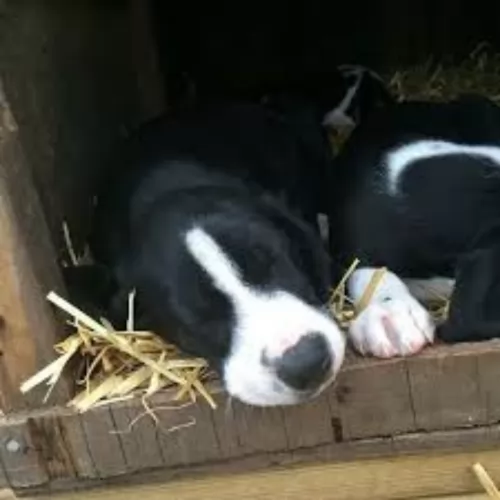 The Stephens Stock Cur is a breed of medium size, dark dogs – either very dark grey or black. Their heads are domed, and the muzzle is short with dark eyes. The breed’s chest is broad and deep with a neck of medium length and either a rough or smooth coat. They are smaller than the other Curs like the Black Mouth Cur or the Mountain View Cur.
The Stephens Stock Cur is a breed of medium size, dark dogs – either very dark grey or black. Their heads are domed, and the muzzle is short with dark eyes. The breed’s chest is broad and deep with a neck of medium length and either a rough or smooth coat. They are smaller than the other Curs like the Black Mouth Cur or the Mountain View Cur.
They are strong and capable of treeing their prey. Their body is longer than it is high, and they have powerful and long legs. Their appearance is sleek and elegant. The nose is dark and square, and their stance is alert and that of a watchdog. This is an athletic hunting dog that is aggressive in the field and chilled at home.
 Today’s Standard Schnauzer is a square, robust, medium sized dog. The breed boasts heavy eyebrows and thick beards. They are salt and pepper or black and their coat is wiry and stiff. The breed have excellent muscle tone and a body in proportion height to length. Their build is rugged, and coat is dense.
Today’s Standard Schnauzer is a square, robust, medium sized dog. The breed boasts heavy eyebrows and thick beards. They are salt and pepper or black and their coat is wiry and stiff. The breed have excellent muscle tone and a body in proportion height to length. Their build is rugged, and coat is dense.
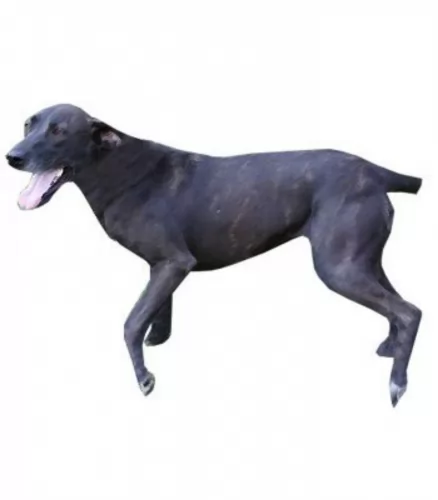 1. Children friendliness - They are tenacious on the hunt but once at home they love children.
1. Children friendliness - They are tenacious on the hunt but once at home they love children.
3.Adaptability They are adaptable if you can get them the exercise, they need every day. They won’t do well in an apartment without going to play and run somewhere else every day.
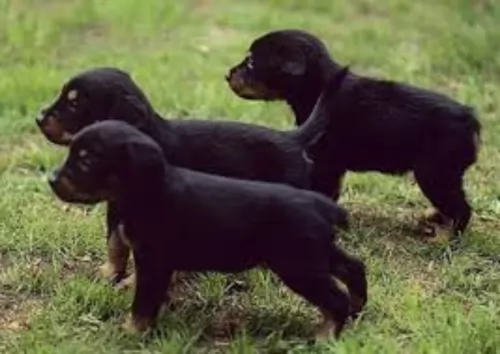 The Stephens Stock Cur is a fairly healthy breed, fairly isolated in the hills and mountains of Kentucky and Tennessee. They are prone to a few health conditions but there are no genetic and breed specific issues.
The Stephens Stock Cur is a fairly healthy breed, fairly isolated in the hills and mountains of Kentucky and Tennessee. They are prone to a few health conditions but there are no genetic and breed specific issues.
• Ear and Eye Infections. Keep them clean and keep debris out of both ears and eyes after hunting.
 There are a couple of major hereditary health issues faced by the Standard Schnauzer.
There are a couple of major hereditary health issues faced by the Standard Schnauzer.
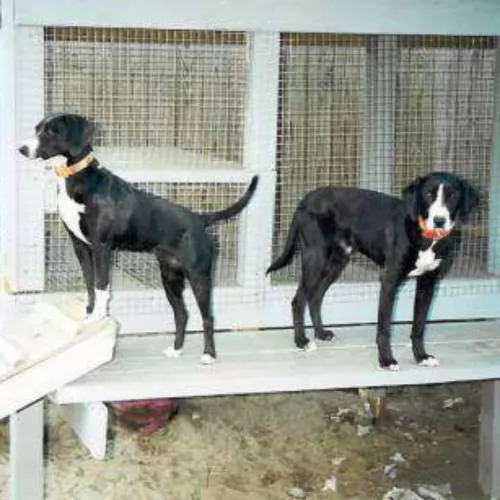 1.Feeding the puppy -Feed puppies a quality food desired for medium breed, high energy dogs. Puppies should eat 3 times a day about a total of 2 cups.
1.Feeding the puppy -Feed puppies a quality food desired for medium breed, high energy dogs. Puppies should eat 3 times a day about a total of 2 cups.
2.Feeding the adult Feed a high quality dog food with plenty of protein and designed for medium size dogs. Feed a total of 3 cups over 2 meals a day.
4. Games and Exercises – This is a very high energy treeing hunting dog with remarkable speed and agility. They need exercise – both physical and mental. One walk a day will not do it for these dogs. Have a fenced in yard or take them to organized activities like field trials, agility, flyball, hunting, search and rescue or barn hunt. They love to hunt with their people.
 1Feeding the puppy: At 8-12 weeks feed four times a day. At 3 to 6 months feed three times a day. At 6 to 12 months feed twice a day.
1Feeding the puppy: At 8-12 weeks feed four times a day. At 3 to 6 months feed three times a day. At 6 to 12 months feed twice a day.
4. Games and Exercises – The breed is extremely athletic and needs daily exercise. They are playful with dogs and people and they are family dogs. They want to go wherever you go. Hiking, running, jogging and organized activities.
They are great at obedience, agility, flyball, disc dog, herding and tracking. They have also been involved in search and rescue, bomb detection, and cancer detection.